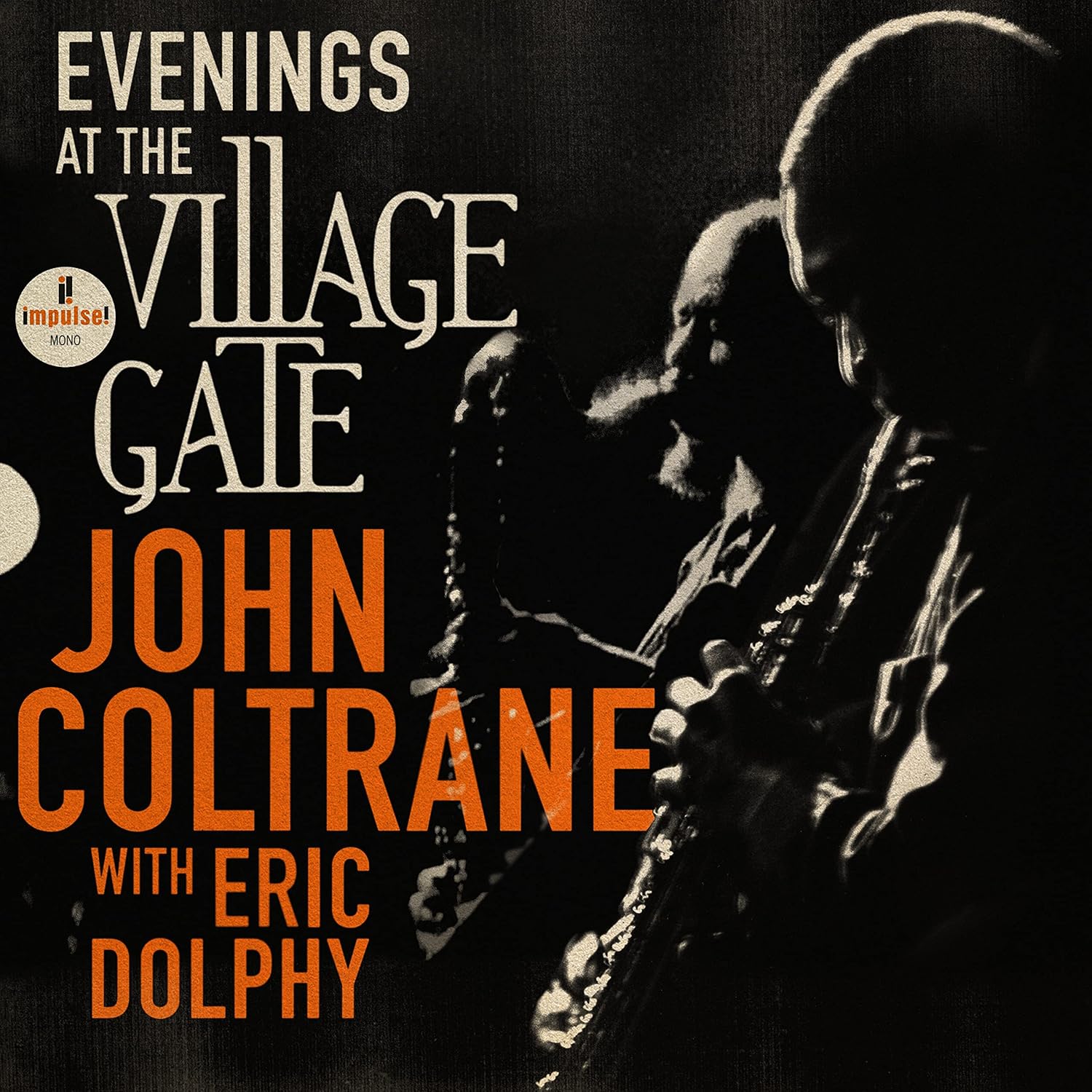
Evenings At The Village Gate: John Coltrane with Eric Dolphy
FREE Shipping
Evenings At The Village Gate: John Coltrane with Eric Dolphy
- Brand: Unbranded

Description
Coltrane switched bass duties to 23-year-old Reggie Workman and backed his combo with a slew of auxiliary musicians. Scores of Coltrane heads weaned themselves on the impressive fidelity of “Live” at the Village Vanguard and 1964’s Live at Birdland, both of which were captured with extreme stereo know-how by Rudy Van Gelder. Recorded with the same line-up as this album, it’s a euphoric, exploratory masterclass in what Coltrane was capable of in 1961. Part of that rare uncertain quality was down to the presence of Dolphy, who Coltrane had first befriended in New York in 1959. LondonJazz is a not-for profit venture, but may occasionally take on work as a paid publicist and/or sell advertising packages.
Squabbles about sound quality, and comparisons between various iterations of his quartet, are never convincing: John Coltrane cared about change, not perfection. By contrast, the version here, as much to do with the drum-forward recording as anything, feels somehow more sluggish, Coltrane’s and Dolphy’s motivic Eastern patterns sounding disquieted and imprisoned, like two giant glittering insects trapped in a conservatory and only the duet between Jones and Tyler allowing any sense of escape. The result was the risky, perennially underrated Africa/Brass, which updated the big-band ensembles of yore with transatlantic clave beats and polyrhythms. The version bears no similarity to the original except for a several-second phrase during a breathless solo. The concert itself is fascinating Coltrane still is modal mode but getting increasingly ferocious in his sound explorations with Dolphy going his own way into the avant garde with his angular, but not unmelodic, sound.The 103 third parties who use cookies on this service do so for their purposes of displaying and measuring personalized ads, generating audience insights, and developing and improving products. Compared to “My Favourite Things”, the less familiar “When the Lights Are Low” seems almost ordinary, but it contains some beautiful playing, including a superlative solo by Tyner. Before he lost his fight with liver cancer at age 40, Coltrane released definitive albums in both modes, but they were hardly end points for an artist who often seemed to embody flux itself.
There were precedents for composers using two bassists, but arguably no one before Coltrane had saddled one bassist with roving lead parts and another with a stationary, raga-inflected drone.
Pitchfork may earn a portion of sales from products that are purchased through our site as part of our Affiliate Partnerships with retailers. The booklet is beautiful, with my only caveat being that it’s a bit difficult to work out who wrote what. Africa/Brass was Coltrane’s most unusual album in the busy year of 1961, and it landed on shelves near the end of his run at the downtown venue. Is it because the unique atmosphere created by that era has the power to draw me in without saying yes or no? Dolphy’s feature on bass clarinet on ‘When Lights Are Low’ has something of a bassoon-ish quality that is hauntingly eerie.
Confusion was a frequent reality at the Village Gate, a hall that prided itself on its sometimes disarming variety. It also includes the album’s only drum solo, although the sheer physicality of Jones’ drumming generally pushes the music along and the band re-entering after his solo provides its most exciting point.
He flails against orthodoxy, rattles the bars of swing time and jeers at the expectations of consistency that percussionists have to shoulder. Evenings at the Village Gate: John Coltrane with Eric Dolphy by John Coltrane with Eric Dolphy Reviews and Tracks – Metacritic". That track is immediately followed by When Lights are Low, here Eric is on his bass clarinet which he plays magnificently. Critics tout Coltrane’s soprano saxophone as the key that unlocked the door to spiritual jazz, yet Dolphy’s similarly unconventional instrumentation greased the hinges.
The set ends with a 22-minute version of Africa, the Tynerarranged big band number from Africa/Brass stripped back to quartet, but with the addition of second bassist, Art Davis. This recording represents a very special moment in John Coltrane's journey—the summer of 1961—when his signature, ecstatic live sound, commonly associated his Classic Quartet of '62 to '65, was first maturing and when he was drawing inspiration from deep, African sources— and experimenting with the two-bass idea both in the studio (Olé) and on stage. Then, in April, the then 36-year-old saxophonist became the first artist signed to Creed Taylor’s new Impulse! Ostensibly a timekeeper, Jones was the wildest member of Coltrane’s ’61 quartet, and perhaps as a result he was the last player of this era that Coltrane would replace.Eighty minutes of never-before-heard music from this group were recently discovered at the New York Public Library.
- Fruugo ID: 258392218-563234582
- EAN: 764486781913
-
Sold by: Fruugo
